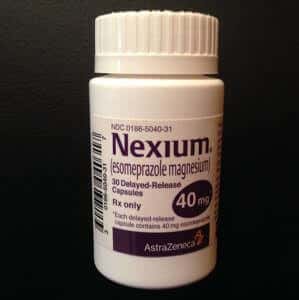
Medications such as omeprazole (Prilosec), esomeprazole (Nexium), lansoprazole (Prevacid) and many others are termed proton pump inhibitors (PPIs). They shut down cells in the stomach that produce acid. This can reduce the problem of acid reflux, and as a result these drugs are often prescribed for GERD (gastroesophageal reflux disease) and Barrett’s esophagus.
Nevertheless, PPIs are not entirely benign. Many nutrients are best absorbed when there is some acid in the stomach, so long-term PPI use can lead to deficiencies. Stomach acid is also somewhat protective against bad bacteria entering the body; shutting it down so efficiently increases the risk of intestinal infections and pneumonia.
Getting Off PPIs:
Perhaps the most troubling problem, though, is that getting off PPIs can be very difficult. Rebound heartburn may be mis-interpreted as a continuation of the original problem and is often so painful that it is no wonder people start right back taking their medicine. Many are hoping for help in withdrawing from the drugs, just as this reader does.
Q. What can I do? I have been on PPIs for 15 years. The doctors say that getting off this medicine is too hard, so I’ll have to stay on.
I have told three family practice doctors and three gastroenterologists that I do not like the long-term effects of PPIs have and they all poo-hoo that. I have asked each one about coming off PPIs, and they poo-hoo that too. Now I am having real trouble with my intestines and I still got the poo-hoo!
I am so disappointed in all these doctors not listening to me that I have changed doctors again. I need help getting off the PPI.
A. It certainly can be difficult to stop taking a proton pump inhibitor (PPI) drug for heartburn. Research has shown that sudden discontinuation of a drug like esomeprazole (Nexium) results in rebound reflux that lasts several weeks (Gastroenterology, July, 2009).
Useful Strategies for Withdrawal:
There are some strategies that can be helpful, however. Reducing the dose gradually may be wise (Medical Hypotheses, Sep., 2011). Using DGL (deglycyrrhizinated licorice) before meals to ease heartburn can help, and so can munching a few almonds after the meal. We are sending you our Guide to Digestive Disorders with other suggestions to help you get off a PPI and manage your symptoms more naturally, such as with persimmon-ginger tea.
Long-term use of PPIs can raise the risk of diarrhea, pneumonia, fractures and vitamin B12 deficiency and should be reserved for people with serious digestive problems that don’t respond to other treatments (Therapeutic Advances in Gastroenterology, July, 2012).

